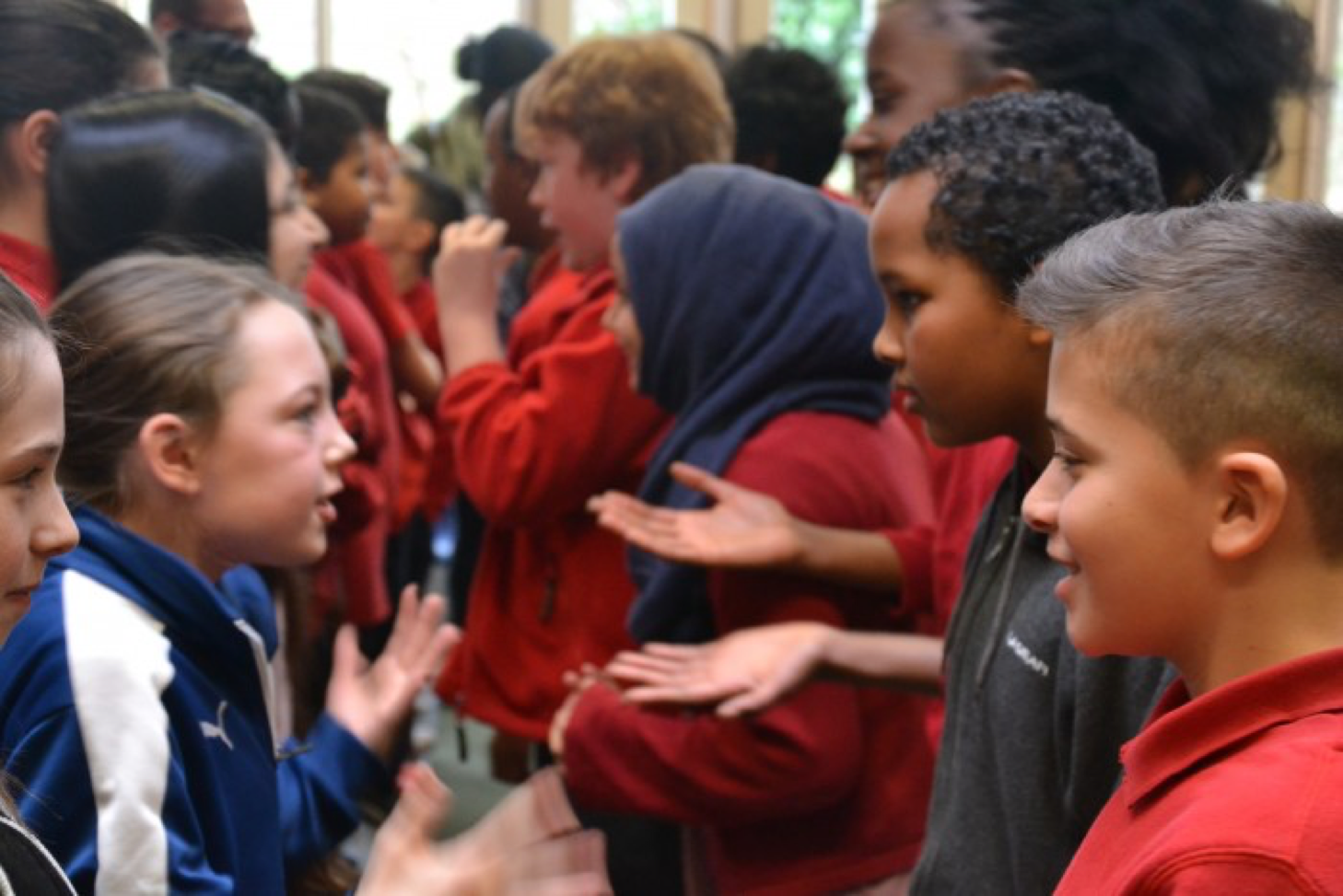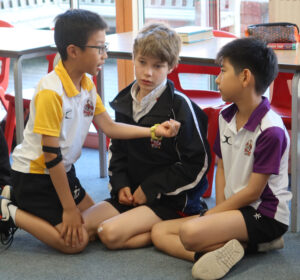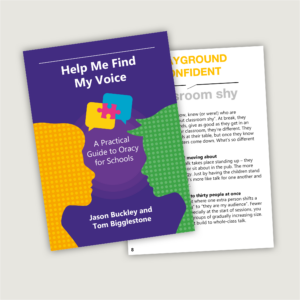Oracy - A simple definition
Oracy is the ability to express yourself through speech and talk. This unlocks the opportunity to articulate your ideas, engage with others and apply your learning. Easy opportunities for oracy include:
- Classroom discussions
- Group work
- Structured questioning
- Debating
- Collaborative team-challenges
- Peer to peer feedback
...and many more.

Why does oracy matter?
The Education Endowment Foundation places oracy, or oral language interventions, as third on their list of top inventions for progress. It is described as “Very high impact for very low cost based on extensive evidence.” According to the EEF, on average, oral language approaches have a high impact on pupil outcomes of 6 months’ additional progress.
And it’s easy to see why: if a child can talk about a topic, they’re much more likely to understand it, and access deeper more challenging questions about it.
By helping a child talk, we are helping them understand their own thinking, and share this with the world. This has immeasurable benefits for their mental health, their ability to bond with others and flourish at home, at work, and in the community.
“I wish you’d come to my school when I was a child. I was the one who hid behind my hair at the back of the class and hoped nobody asked me to speak.” I still remember the passion a teaching assistant showed in these words after a training session, ten years ago or more. None of her teachers had helped her find her voice. It was only well into adulthood that, fed up of being sidelined, she did so herself by sheer willpower. A teacher at a recent open evening had said her son was, “No trouble, you’d hardly know he’s there.” You can imagine how that went down.


What does oracy look like in the classroom?
Oracy takes many forms in the classroom. We've a whole host of ideas for how to get more into your lessons, whether that's...
- discussions
- debates
- persuasive talk
- ranking activities
- choose-your-own-adventure stories
- thinkers' games
- P4C
- structured partner and group work
Head to our special page on Oracy in the classroom for inspiration.

Looking for oracy resources?
We make new resources every week, and they're completely free.
Strategies to help every pupil: the 12 Principles of our Oracy Toolkit
Hundreds of schools trust us to deliver oracy CPD days to help improve listening, develop independent thinking and help every child find their voice.
All by showing teachers easier, more effective ways to work with their existing curriculum, not piling more on their plate, including:
1. Playground Confident, Classroom Shy - how to make the most of playground energy to put children at ease in the classroom.
2. Small Talk Before Big Talk - why we need to break our silence early before we talk in front of everyone
3. Sides Then Selves - why for some children, talking as someone else is easier than talking as themselves
4. Stretch - how the cognitive side of speaking fear can be overcome
5. Exposure - how to create “cover” to help everyone feel at ease
6. Shrink - why for children to be more, we have to be less. And how to do it.
7. Serve and Return - what the thirty-million word gap told us about oracy (and it’s not to do with the words you hear)
8. Co-Coaching Questions - how a simple set of open questions can push for deeper thinking and fearless talking
9. Talk Three Times - ways to help everyone rehearse their idea twice before making it public
10. Speaking Without Thinking - a failsafe way to overcome the “I dunno” card
11. Unwrongification - strategies to remove the fear of getting it wrong
12. PRACTICE over performance - why everyone in class - teacher included - should prioritise practice over performance
Each principle of the toolkit is explained in our simple minibook "Help Me Find My Voice", which is available now in our shop
Looking for oracy training?
Since 2008, we've with hundreds of schools to help all pupils become more articulate, thoughtful speakers without adding to teacher workload.
Contact us!
Contact us today to arrange a chat - choose from any of the options below.